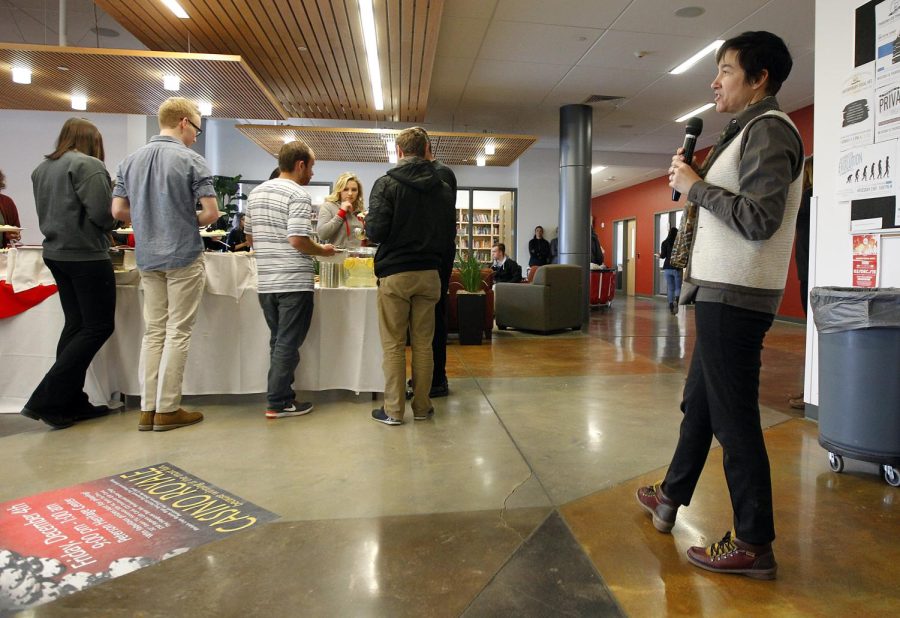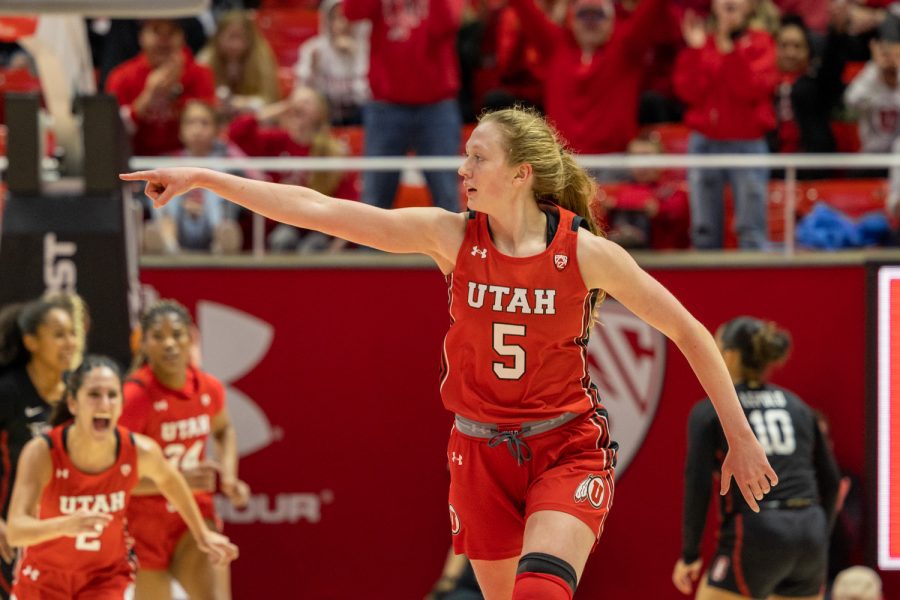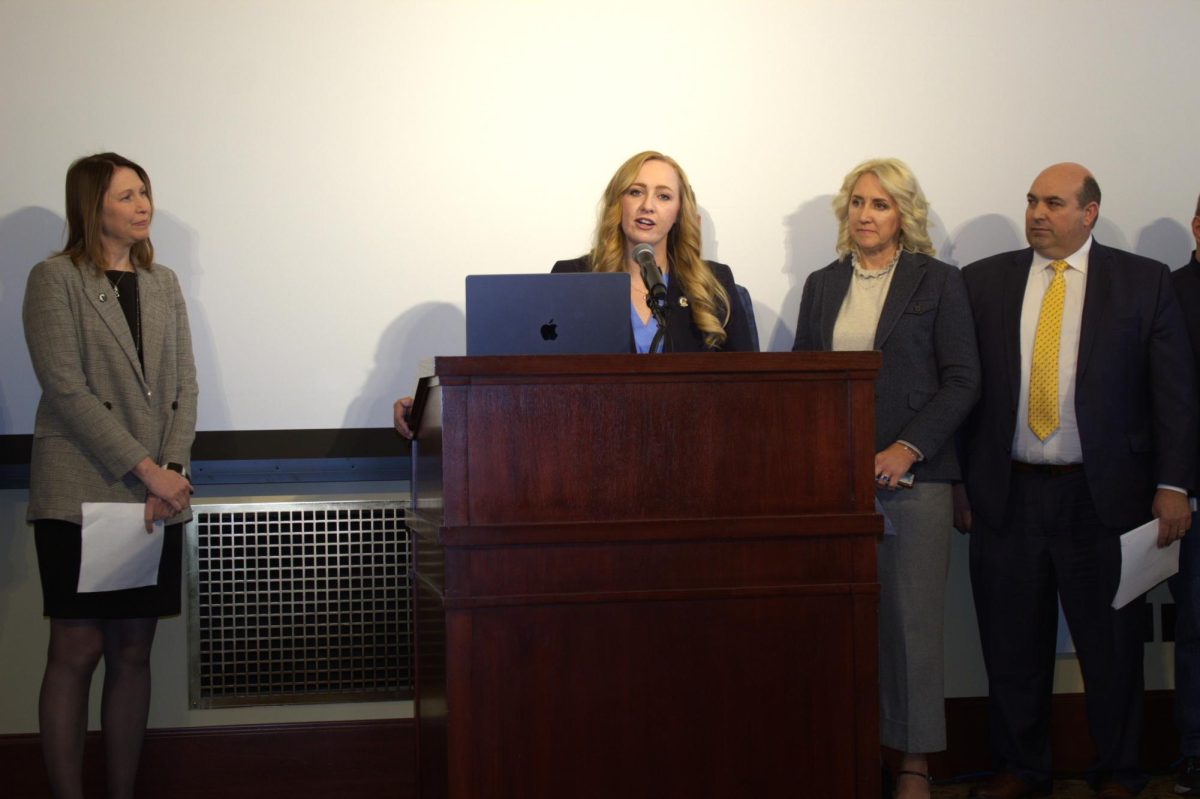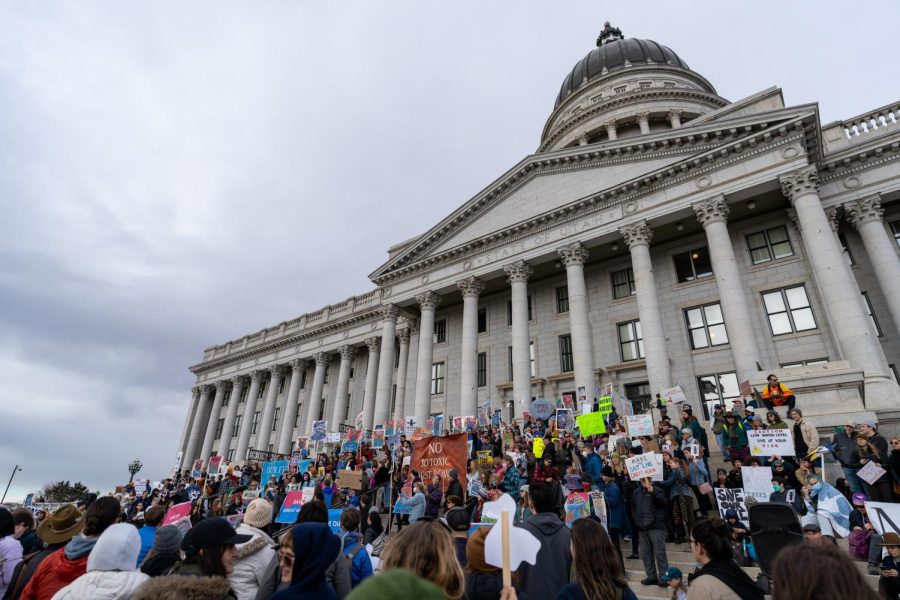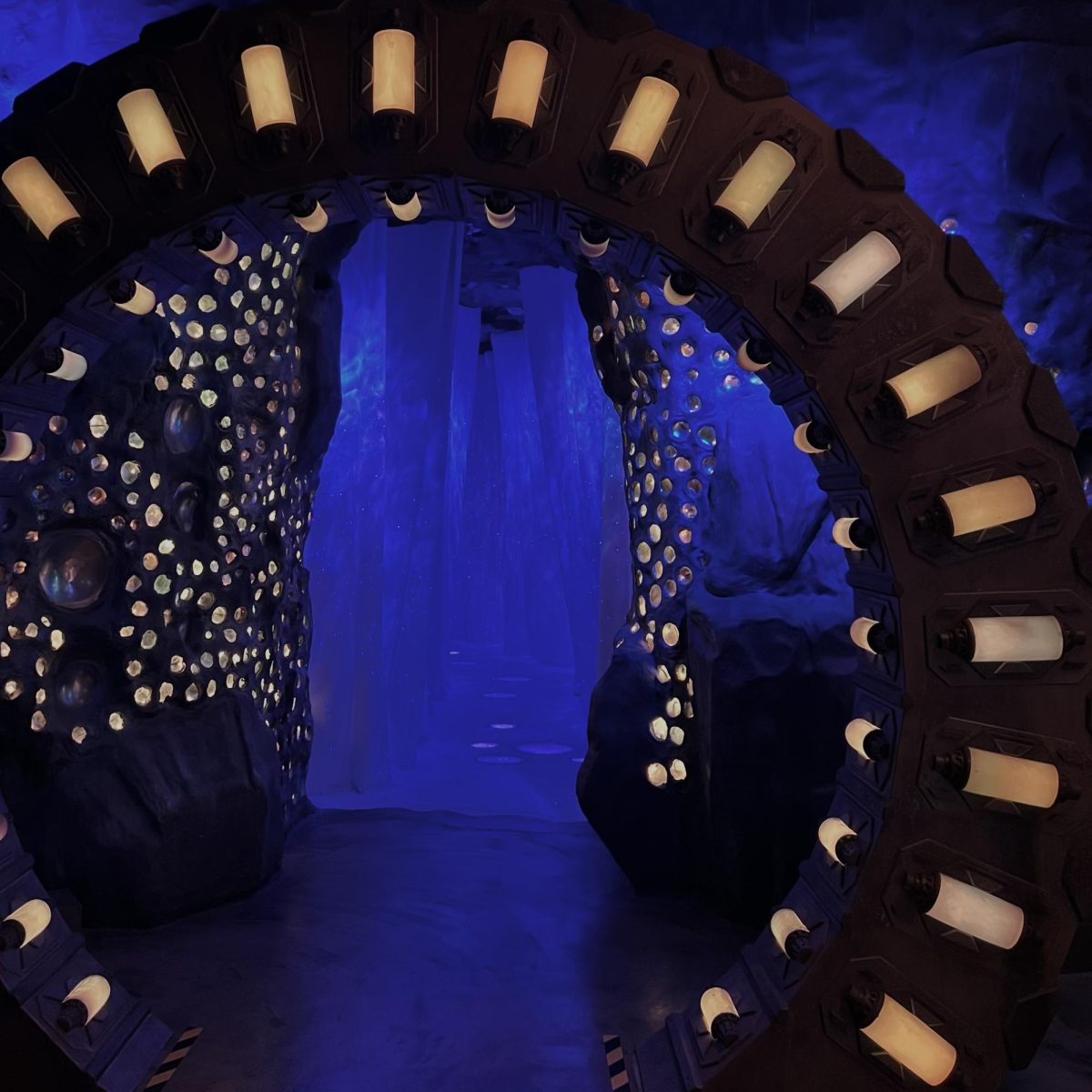Public Lectures Held to Hire New Honors College Faculty
Dean of the Honors college Sylvia Torti speaks at a luncheon at the Marriott Honors Community, Wednesday, Dec. 2, 2015. (Photo from Daily Utah Chronicle Archives)
February 28, 2022
From January to March 2o22, the University of Utah Honors College has been conducting a search for new faculty members.
Intellectual Traditions, core classes within the Honors College curriculum, have two available openings — one for the writing department and the other for the Ecology and Legacy department. Honors College Associate Dean Monisha Pasupathi explained the difference between the two positions: there are career line and tenure line positions. The goal of the college is to hire staff who are passionate about teaching, because that is the main part of the position.
The search for faculty began last year, with feelers being sent out and applications slowly rolling in.
Pasupathi explained one of the goals during the hiring process is to diversify the department by hiring new colleagues who specialize in different texts and areas.
The committee that conducts the faculty search includes professors Christopher Mead, Ginger Smoak, Michael Gills and Pasupathi.
The proceedings began with several rounds of interviews, then a trip to campus to look around and finally the public lectures and student meetings.
“But usually we try to get at least a handful of students to sit with the candidate and get to know them a little bit,” Pasupathi said. “We try to just solicit input from as many members of the community as we can.”
The college emails Honors students with surveys about the candidates to gather feedback. The emails include the candidate’s curriculum vitae, which is similar to a resume, and contains “key academic and scholarly achievements.”
Part of the hiring process includes the candidates holding lectures that are open to the public, with a Zoom option for those who would prefer an online format.
These presentations are being held throughout the month of February and beginning of March, and several topics will be covered.
The purpose of the lectures is so the students and the search committee can get a sense of what the presenting lecturer’s teaching style is like.
One such lecture was held on Feb. 10, with Juliana Chow presenting. Chow is a published author and a graduate of the University of California, Berkeley.
Juliana Chow gave her public lecture, “Unsettling Ecological Thought: Ecological Thinking in the Time of Settler Colonialism,” then followed it up with a student-involved lunch.
The lecture focused on ecology in a historical sense, and how it translates to contemporary ideas of the field.
Chow asked questions like “When did ecology as a concept or science start?” and “Who first coined the term ecology?”
Chow began the lecture by acknowledging the land agreement between the Ute Tribe and the U, because she believes it is an important part of this institution.
She gave examples on the evolution of the struggle for life, with the main example being the now extinct passenger pigeon.
She drew from pioneers in their respective fields such as Charles Darwin, Ernst Haeckel, Janet Browne and Robin Wall Kimmerer, who all studied ecology and how it relates to settler colonialism in some respect.
Pasupathi wants students to know their feedback is greatly appreciated, and they sincerely consider the data in the surveys when making final decisions.
“I just really encourage students to look for opportunities to be involved in faculty hirings across campus, and to not be afraid to ask their good questions,” Pasupathi said.
On March 1, Helen Makhdoumian is giving a public lecture called “From the ‘Great Armenian Orphan Migration’ to the Lebanese Civil War, Memory Work as Connected and Connective.”


